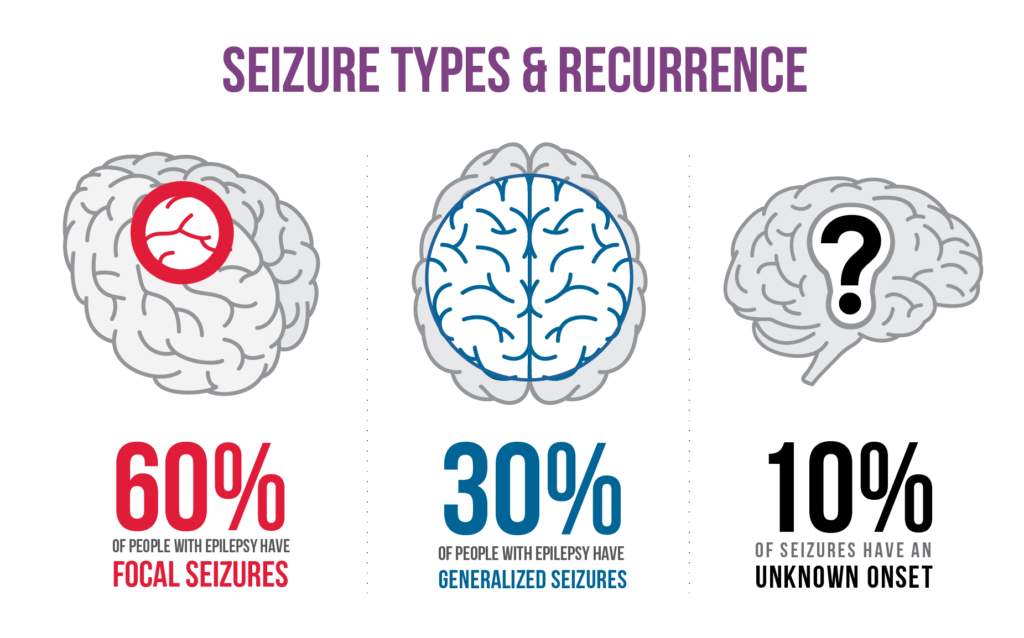Seizures are a type of neurological condition that occur when there is abnormal electrical activity in the brain. They can result in a variety of symptoms, including loss of consciousness, muscle spasms, and convulsions. Seizures during pregnancy can be concerning for both the mother and the developing fetus. In this article, we will explore the causes and management of seizures during pregnancy.
Causes of Seizures During Pregnancy
There are several potential causes of seizures during pregnancy, including pre-existing medical conditions, medication use, and pregnancy-specific conditions.
Pre-existing medical conditions that can increase the risk of seizures during pregnancy include epilepsy, brain tumors, and stroke. Epilepsy is a chronic condition characterized by recurrent seizures. Women with epilepsy have an increased risk of seizures during pregnancy, particularly during the first and third trimesters. This is thought to be due to changes in hormone levels and medication adjustments.
Medication use can also increase the risk of seizures during pregnancy. Certain medications, such as antipsychotics and antidepressants, can lower the seizure threshold and increase the risk of seizures. In addition, some women with epilepsy may need to adjust their medication regimen during pregnancy, which can increase the risk of seizures.
Pregnancy-specific conditions, such as preeclampsia and eclampsia, can also increase the risk of seizures. Preeclampsia is a condition that typically develops after the 20th week of pregnancy and is characterized by high blood pressure and protein in the urine. Eclampsia is a more severe form of preeclampsia that is associated with seizures.
Management of Seizures During Pregnancy
The management of seizures during pregnancy depends on the underlying cause and the severity of the seizure. In some cases, emergency medical intervention may be required to prevent harm to the mother and fetus.
If a woman has a pre-existing medical condition that increases the risk of seizures, such as epilepsy, it is important to work closely with a healthcare provider to manage the condition during pregnancy. This may involve adjusting medication dosages or changing the medication regimen altogether.
In cases where medication adjustments are necessary, it is important to balance the need for seizure control with the potential risks to the developing fetus. Some antiepileptic medications have been associated with an increased risk of birth defects and other adverse outcomes, so careful consideration is necessary when making medication adjustments during pregnancy.
If a woman experiences a seizure during pregnancy, it is important to seek medical attention immediately. In some cases, emergency treatment may be necessary to prevent harm to the mother and fetus. Treatment may involve administering antiepileptic medications, managing any complications that arise, and monitoring the mother and fetus for any adverse effects.
Preventing Seizures During Pregnancy
While it is not always possible to prevent seizures during pregnancy, there are steps that women can take to reduce their risk. These include:
- Working closely with a healthcare provider to manage any pre-existing medical conditions that increase the risk of seizures.
- Avoiding medications that can lower the seizure threshold, unless they are necessary for the woman’s health.
- Taking prenatal vitamins and eating a healthy diet to support the developing fetus.
- Getting adequate rest and avoiding stress, which can increase the risk of seizures.
- Avoiding alcohol and illicit drugs, which can increase the risk of seizures and harm the developing fetus.
Conclusion
Seizures during pregnancy can be concerning for both the mother and the developing fetus. There are several potential causes of seizures during pregnancy, including pre-existing medical conditions, medication use, and pregnancy-specific conditions. The management of seizures during pregnancy depends on the underlying cause and the severity of the seizure. Women can take steps to reduce their risk of seizures during pregnancy, such as working closely with a healthcare provider, avoiding medications that can lower the seizure threshold,
